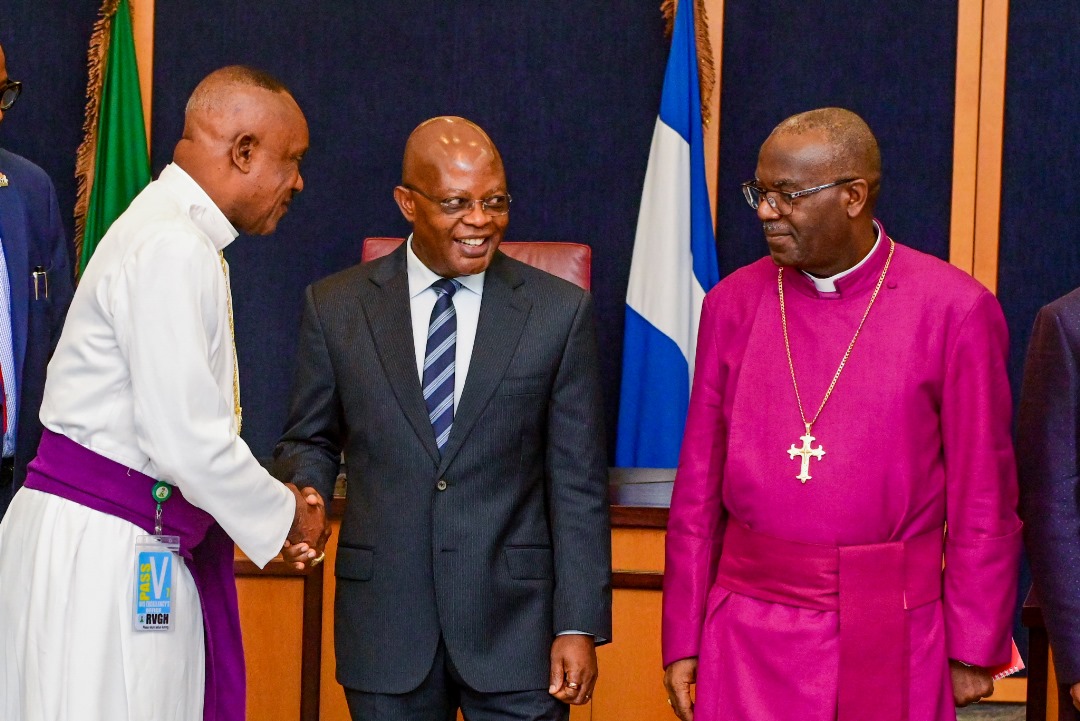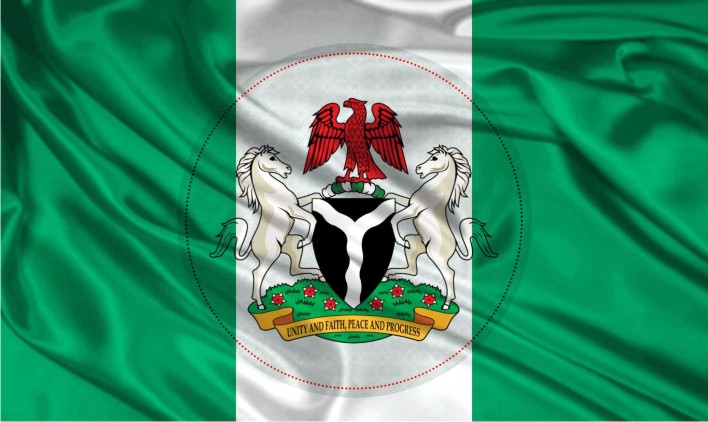Featured
NIMASA Harps On Marine Pollution Prevention

Towards ensuring a safe marine environment from pollution, the Nigerian Maritime Administration and Safety Agency (NIMASA) has restated its commitment to put in place effective marine pollution prevention and control mecganism in order to create an enabling environment for the sector to thrive.
NIMASA reiterated its commitment to the effective implementation of International Oil Pollution Compensations (IOPC) Fund in Nigeria by ensuring optimal utilization of the instrument in the country.
Director of Marine Environment Management Department, NIMASA, Aishatu Jidda, stated this while speaking at the 7th meeting of the National Standing Committee on IOPC Fund implementation in Nigeria.
Jidda, who represented the Director General, NIMASA, urged all stakeholders to abide by the provisions of all enabling international instruments as provided for by the International Maritime Organization (IMO).
According to him the Convention for Civil Liability for Oil Pollution Damage 1992, and the International Convention on Establishment of an International Fund for Compensation for Oil Damage 1992, which Nigeria is signatory to, remains relevant to the growth and development of the Nigerian maritime sector.
“Nigeria has domesticated these Conventions and we are qualified to reap the benefits therein.
”We, at NIMASA, have a register for contributing oil receivers in Nigeria. We urge all stakeholders to play their part to ensure reports emanating from Nigeria are in line with acceptable standards.
“It is good we have a record as a contributing oil receiver and because it is our obligation to ensure we give the IOPC Fund the names of all contributing oil receivers in Nigeria. NIMASA is committed to ensuring Nigerians enjoy all the benefits from being signatory to these International Conventions,” she said.
NIMASA also affirmed the importance of the conventions to Nigeria’s marine environment management.
Jidda said the facilitation of domestication of the conventions by NIMASA led to the constitution of the national standing committee of the IOPC Fund in September 2004 and five other sub-committees in October 2016, with a mandate to ensure seamless implementation of both conventions.
The five subcommittees are: the sub-committee on fish stock/fisheries; sub-committee on identification of receivers of contributing oil; sub-committee on compilation of oil report; sub-committee on claims handling; and sub-committee on pricing index.
The objective of the meeting was to deliberate on the resolutions reached at the 6th meeting, including the development of a roadmap on the establishment of a Local Oil Pollution Compensation Fund by local insurance companies, drawing up national guidelines on fish stock/fisheries, as well as the collation of recent data on Contributing Oil Receivers and Contributing Oil Products imported.
Other resolutions include drawing up National Guidelines on fish stock/fisheries, collation of recent data on contributing oil receivers, contributing oil products imported, and quantity of product and details of coastal movement of Low Pour Fuel Oils (LPFO) and High Pour Fuel Oils (HPFO) from the refineries and condensates, as well as distribution of COR-1 Forms and carrying out sensitization programmes.
Featured
FG To Seize Retirees’ Property Over Unpaid Housing Loans

The Federal Government Staff Housing Loans Board says it has begun the compilation of list of retired civil servants who have defaulted on the full repayment of housing loans obtained.
Head of Information and Public Relations, FGSHLB, Mrs Ngozi Obiechina, disclosed this in a statement in Abuja, yesterday.
Obiechina quoted the Executive Secretary of the Board, Mrs Salamatu Ahmed, as saying that the move was aimed at recovering mortgaged properties from retirees who failed to meet their loan obligations.
Ahmed noted that the decision followed a recent memo issued by Mrs Patience Oyekunle, Permanent Secretary, Career Management Office, Office of the Head of the Civil Service of the Federation.
According to her, the memo reminded public servants of the mandatory requirement to obtain a Certificate of Non-Indebtedness to the FGSHLB and MDA Staff Multipurpose Cooperative Society as a precondition for retirement.
The Executive Secretary said that the board would take necessary legal steps to repossess properties where applicable, in line with the terms of the loan agreements.
She said this was in line with the provisions of the Public Service Rules 021002 (p), issued by the Office of the Head of the Civil Service of the Federation.
“I am directed to bring to your attention the provision of Public Service Rule (PSR) 021002 (p), which mandates all public servants to obtain a Certificate of Non-Indebtedness as a prerequisite for retirement.
“The Federal Government will commence the seizure of mortgaged properties belonging to retiring federal public servants who have failed to fully repay housing loans obtained from the board,” she said.
Ahmed explained that the FGSHLB reserves the legal right to repossess any mortgaged property in cases where a public servant exits service without fully repaying the loan.
She reiterated that the directive also applied to already retired officers who were still indebted.
She urged all affected public servants to regularise their loan status and obtain the required clearance certificate without delay.
“The board is currently compiling a list of such retirees, which will be forwarded to relevant regulatory agencies for debt recovery.
“The FGSHLB remains committed to enforcing compliance and ensuring proper loan recovery procedures are followed, “ she added.
Featured
FG Begins Induction For New Permanent Secretaries, Accountant-General

The Federal Government has kicked off a three-day induction programme for newly appointed Permanent Secretaries and the Accountant-General of the Federation, aimed at equipping them for strategic leadership and effective policy implementation.
The induction, according to a statement yesterday by the Director, Information and Public Relations, Federal Ministry of Information and National Orientation, Eno Olotu, which commenced on Wednesday, is being held at the National Counter Terrorism Centre in Abuja.
Speaking at the opening session, the Head of the Civil Service of the Federation, Mrs. Didi Esther Walson-Jack, congratulated the new appointees and described their roles as pivotal to governance and national development.
“Permanent Secretaries are the engine room of the government. They are critical to driving policy implementation, institutional performance, and reform across the service”, she said.
The Federal Government has kicked off a three-day induction programme for newly appointed Permanent Secretaries and the Accountant-General of the Federation, aimed at equipping them for strategic leadership and effective policy implementation.
The induction, according to a statement yesterday by the Director, Information and Public Relations, Federal Ministry of Information and National Orientation, Eno Olotu, which commenced on Wednesday, is being held at the National Counter Terrorism Centre in Abuja.
Speaking at the opening session, the Head of the Civil Service of the Federation, Mrs. Didi Esther Walson-Jack, congratulated the new appointees and described their roles as pivotal to governance and national development.
“Permanent Secretaries are the engine room of the government. They are critical to driving policy implementation, institutional performance, and reform across the service”, she said.
“The expectations are high, and the responsibility is immense. But with commitment and teamwork, we can deliver a more efficient, accountable, and citizen-centred public service.
“This final lap of FCSSIP 25 calls for urgency, accountability, and strategic focus. You must translate vision into measurable results,” she stated.
In her welcome address, the Permanent Secretary, Career Management Office, Mrs. Fatima Sugra Tabi’a Mahmood, described the programme as a strategic investment in leadership capacity and institutional effectiveness.
The sessions featured expert-led discussions, simulations, and strategic briefings facilitated by a distinguished faculty, including Engr. Suleiman Adamu, former Minister of Water Resources; Dr. Hadiza Bala Usman, Special Adviser to the President on Policy and Coordination; Mrs. Beatrice Jedy-Agba, Solicitor-General of the Federation and Permanent Secretary, Federal Ministry of Justice; Alh. Yusuf Addy, retired Federal Director; Alhaji Bukar Goni Aji, former Head of the Civil Service of the Federation; Amb. Mustapha Lawal Suleiman, Mr. Adesola Olusade, and Dr. Ifeoma Anagbogu, all retired Permanent Secretaries.
Participants include Dr. Obi Emeka Vitalis, Mrs. Fatima Sugra Tabi’a Mahmood, Mr. Danjuma Mohammed Sanusi, Mr. Olusanya Olubunmi, Dr. Keshinro Maryam Ismaila, Dr. Akujobi Chinyere Ijeoma, Dr. Umobong Emanso Okop, Dr. Isokpunwu Christopher Osaruwanmwen, Mrs. Oyekunle N. Patience, Dr. Kalba U. Danjuma, Mr. Nadungu Gagare, Mr. Onwusoro I. Maduka, Dr. Usman Salihu Aminu, Mr. Ogbodo Chinasa Nnam, Mr. Ndiomu Ebiogeh Philip, Dr. Anuma N. Ogbonnaya, Mr. Adeladan Rafiu Olaninre, and Mr. Mukhtar Yawale Muhammed, alongside the Accountant-General of the Federation, Mr. Shamseldeen Babatunde Ogunjimi.
The induction programme will feature sessions on public sector leadership, policy delivery, ethics in service, digital transformation, and performance management.
Featured
NNPCL To Undergo Forensic Audit Soon -FG

The Minister of Finance and Coordinating Minister of the Economy, Wale Edun, has announced that a forensic audit of the Nigerian National Petroleum Company Limited (NNPCL) will begin soon.
Edun revealed this at the ongoing Nigerian Investor Forum, held alongside the IMF/World Bank Spring Meetings in Washington DC.
The minister explained that the recent changes in the NNPCL management are part of a broader effort by the Federal Government to clean up and examine the company closely.
While addressing top global investors, including representatives from J.P. Morgan, Edun shared key reforms the government has introduced to revive the economy and restore investor confidence.
He told the investors that the government’s bold economic steps have laid a strong foundation to attract private investment.
He stated, “Our goal is not just to maintain this momentum, but to accelerate it. We are targeting seven per cent annual growth, and we believe the policies we have implemented have laid the groundwork to achieve this.”
Edun highlighted that President Bola Tinubu’s administration has rolled out major reforms that are already making a difference.
He added that the Nigerian economy grew by 3.84 per cent in the fourth quarter of 2024 and recorded a 3.4 per cent growth for the year.
Edun further stressed the importance of the reforms, describing them as “unprecedented,” adding that, “We said we would do it, and now we have done it. This time, we’re staying the course.”
He pointed out signs of progress such as lower budget deficits, a better trade balance, and a more stable exchange rate.
He also said that the focus is now on growing key sectors, especially agriculture.
According to Edun, agriculture is at the top of the government’s agenda, with the aim of improving food supply and increasing productivity.
“We aim to close the food supply gap, not by importing more, but by enabling domestic producers to scale and innovate,” he said.
On infrastructure, Edun revealed that the government has rolled out 90,000km of fibre optic cable to improve internet access.
He said this move is crucial for supporting young Nigerians and tech startups.
He also noted that 4,000km of roads have been offered for private sector participation, with the first 1,000km already approved for construction.
-

 News5 days ago
News5 days agoTinubu Orders Security Chiefs To Restore Peace In Plateau, Benue, Borno
-
Politics5 days ago
Newly Appointed Bayelsa PDP CTC Chair Unveils Agenda
-

 Politics5 days ago
Politics5 days agoGov Alia Appoints TuFace As Adviser
-
Politics5 days ago
Leave PDP, Bode George Tells Atiku, Wike
-

 Featured5 days ago
Featured5 days agoFG Begins Induction For New Permanent Secretaries, Accountant-General
-
Politics5 days ago
Gov Bago Succumbs, Invites Persons With Dreadlocks
-

 Niger Delta5 days ago
Niger Delta5 days agoDELSU Spends N720m On Electricity Annually -VC
-
Politics5 days ago
Nasarawa PDP Sets Up Reconciliation Committee





